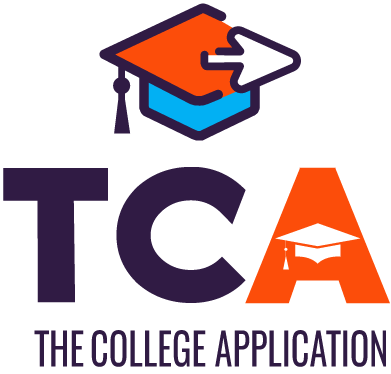Engineering Personal Statement: Why It’s Important
With careers in engineering providing over 20% of the UK’s total economic productivity and with over one-fourth of its workforce working in engineering fields, it’s no surprise that some of the best and highest-ranked engineering schools in the world are located in the United Kingdom. So how do you get a spot in one of the best engineering programmes in the world? You need impressive marks, a good resume, and a stellar engineering personal statement.
Before we get to that, though, let’s back up a little and examine everything it takes to get into a good engineering programme.
Engineering Programme Prerequisites
Before you get ready to apply for an engineering programme at any university, there are several prerequisites you need to have met first. While these prerequisites may differ slightly from university to university, the majority of them should remain the same.
Completed Coursework
A Levels
You must have, at a minimum, at least two A-Levels if you expect to get into an engineering programme. In the most popular programmes, you’ll need at least three, with grades of A’s and B’s in each. The exact entry requirements may vary, but they tend to range from CCC to AAA. Most universities prefer you to have ABB.
Additionally, one of your A-Levels needs to be in maths. A second A Level in physics is also encouraged for students hoping to study engineering at Uni. There are other courses that may be accepted in place of physics, such as other science courses, additional maths courses, or design and/or computing courses, but your safest bet will always be maths and physics as two of your A-Levels. If you don’t have an A-Level in maths, you may be required to take a maths and/or mechanics aptitude test before being considered for admission.
Vocational Courses
If you don’t have the required A Levels, another option you can use at some schools is to substitute vocational courses for them. For example, if you have Level 3 or Level 6 qualifications, you might be able to use these as replacements for the A-Level courses. These qualifications include the following:
- SVQ Scientific, Technical & Formulation Processing (SCQF Level 6)
- Pearson BTEC Level 3 National Extended Diploma in Engineering or Construction and Built Environment
It’s important to note that not all universities will accept these as substitutes for A-Levels, so check with each school individually.
Biotechnology and Chemical Engineering
If you’re interested in a biotechnology or chemical engineering programme, the required A Levels are a little different. Universities usually require two A-Levels in science or a Scottish Highers with either biology or chemistry as one of the subjects. Additionally, you’ll also be required to have five GCSEs that include English, maths, and a science.
Scottish Highers
The most common range for entry into Highers is between ABBB and AAAAB. The majority of universities require AABBB. If a university requests an Advanced Highers to supplement Highers, they most often ask for an AA.
Additional Qualifications for Admission
The only true prerequisites for admission into an engineering programme are those listed above, but there are some additional things you may want to have on your application to make it more memorable. These include relevant work or apprenticeship experience, volunteer experience, and personal references.
Applying for Admission
To apply for any undergraduate programme at a university in the UK, particularly an engineering programme, you have to fill out an application through the UCAS (Universities and Colleges Admissions Service). If you’ve ever applied to a college or university in the United States using the Common App, the UCAS is very similar.
It’s a centralised location for applying to a multitude of different schools/courses, and you’ll use it whether you live in the UK or are an international student. The actual name of the application is the UCAS Apply. Once you’ve completed it, you can apply to up to five separate universities (or five separate degree programmes if you aren’t set in your engineering course) simultaneously.
Filling out the UCAS Apply: A Step-by-Step Guide
Step 1: Register for the UCAS Site
This is a simple setup process. You’ll sign up by setting up a username and password. You’ll create some security questions in case you lose your password, and then you’ll be asked some basic information such as your name, birth date, and other personally-identifying information.
Step 2: Verify Your Account, Sign In & Enter the Rest of Your Information
After verifying that you really did create an account, you’ll be asked to sign in using the username and password you just created. Then you’ll fill in the rest of your personal information, including your residency status. You’ll also be asked about how you plan to pay for university and whether or not you’ll be requesting scholarships.
Additionally, you’ll be asked about any special needs you have or the accommodations you’ll need. If you have any type of criminal record, you’ll indicate that in this section. You can also give permission for an adult in your life – parent, adviser, mentor, guardian, etc. – to have access to your UCAS profile. This gives them permission to talk to university staff about you, your university goals, and anything else of note.
Steps 3 & 4: For UK Residents Only
If you’re an international student, you won’t be required to fill out steps three and four. (Note: Residents of the EU might possibly be asked to fill out step 4.) Section three asks about your national identity, ethnic origin, and occupational background. There are some additional questions in this section that are optional. These ask about your religious beliefs, sexual orientation, and gender identity.
You’ll also be provided with space to discuss your own, personal circumstances, especially as they relate to your ability to pay for and succeed at Uni. This could include information about your parents’ education or background, activities in which you’ve been involved, whether or not you’ve been in care, etc.
Section four isn’t always asked and only appears if questions in the personal details section have been answered a certain way. If they do appear, they’ll be asking about your finances.
Step 5: Choose Your Courses/Universities
In this section, you’ll be able to apply for up to five different courses and/or universities. This is where you choose what programmes you hope to be accepted into. You can only choose five though, so choose wisely.
Step 6: Provide Your Educational History
Here you’ll enter your entire educational history beginning at secondary education. You’ll enter your A-Levels as well as any vocational courses you’ve taken. It’s important that you list all of these exactly right, including the marks you received in each.
Step 7: Employment History
This is where you’ll attach your work resume. This is for paid work only. If you have any volunteer experience or other unpaid work, it’ll be listed in your personal statement instead. You can only list five places of employment, so if you’ve had more than five jobs, choose the five most relevant to the programme you’re pursuing (in this case, engineering).
Step 8: Your Personal Statement
We’ll discuss this in-depth a little later on.
Step 9: Review the Details
Once you’ve completed all the above-listed steps, you’ll have a chance to review everything. Review it thoroughly and make any changes necessary. You won’t be allowed to edit it once it’s been submitted.
Step 10: Personal Reference, Application Fee & Submit
Finally, you’ll need at least one personal reference. This should be from someone who knows you in a professional capacity, either from working with you or having had you in class. You’ll also be required to pay an application fee of £20 if you’re applying to only one course and £25 if you’re applying for multiple courses. Then you’ll submit the application.
Once you’ve submitted your UCAS Apply application, you’re all set. You can track it using the UCAS Tracker to see if your desired universities have received it. Then you wait for the university to reach out to you for more information, an interview, or acceptance.
Writing Your Personal Statement
If you’re applying to an engineering programme, you’ll be required to write a personal statement as part of step 8 on the UCAS Apply application. We can’t overemphasise how important step 8 truly is. There are very few universities that require you to write an additional essay or personal statement for entrance into their engineering programmes, so this is your one chance to get it right.
So what exactly should you write about?
There isn’t exactly a prompt for writing your UCAS personal statement. Under this same question – “What should I write about?” – on the UCAS website, the answer given is simply, “You.” In other words, write about yourself.
The admissions team wants to know why they should give you a coveted spot in the engineering programme over every other applicant. You need to tell them why you want a spot at the university, but you also need to tell them why you deserve a spot and what it is about you that should make them want to give you a spot. This means showcasing your strengths, achievements, and drive to succeed.
In case you need a little more guidance, here are some questions to ask yourself to help you get started:
- Why are you interested in attending university, and what aspects of university life are you most looking forward to experiencing?
- What are your career goals?
- What first interested you in engineering, and what about it continues to interest you?
- What experiences have you had, either in school or in the work environment, that would prepare you for studying at university?
- Was there anything about your earlier education studies you found to be particularly helpful or interesting?
- What do you most hope to gain from your time at the university, and what strengths and positive characteristics will you bring with you?
- What makes you a good candidate for a position at Uni?
- What elements of your future studies are you looking forward to most?
- Have you taken any higher education courses already, received any awards or accolades, or been recognised for outstanding academic or professional ability?
- What can you write about to prove that you’ve researched engineering beyond what you learned in your early education?
If you consider these questions and keep them in mind while writing, you’ll likely cover everything you need to cover to make a good impression on the admissions team. UCAS also provides you with this personal statement worksheet to help organise your thoughts and guide your writing.
Standard Engineering Personal Statement Length & Format
Length
One thing to keep in mind while writing your personal statement is that it has to stay within a certain character limit. No matter how much you have to say, you have to keep it under 4000 characters or 47 lines of text.
While this isn’t an exact word count, that averages out to approximately 500 words, which isn’t a ton of words. It’s about one single-spaced page worth of text. This means that you must be concise. You want to get in all the important information that’ll help your application stand out from all the other applications universities receive, but you have to do it without being too wordy.
Format Requirements
Worrying about the formatting requirements (double-spaced, single-spaced, font size, etc.) is unnecessary for your engineering personal statement because you’ll be typing or pasting it into a text box on the website. As long as your paragraphs are clearly defined and your font is easy to read, you should be fine on formatting guidelines.
However, because you only get 47 lines of text, it’s important that you structure your paper correctly. This means breaking your personal statement into roughly three sections, with each section answering a specific question. For the sake of clarity, we’ll call these sections the introduction, body paragraphs, and conclusion.
Now let’s break it down a little further.
A Brief Introduction
The introduction should take up about 15-20% of your personal statement. That’s approximately seven to ten of the 47 provided lines. In your introduction, try to answer the question, “Why do you want to study engineering?” You can talk about the experiences that shaped your love of the subject and the things about it that continue to interest you. You might even touch on why you feel it’s important that people study engineering at all.
Full, Rich Body Paragraphs
Your body paragraphs should make up about 55-65% of your engineering personal statement, or 26 to 30 lines. In these paragraphs, you’ll address the questions, “What have you done that has prepared you for this course?” and “Why do you deserve a spot in the programme?” This is when you go in-depth into your experiences, educational history, relevant employment, etc.
Other questions you may want to address in your body paragraphs are:
- How have you cultivated the knowledge you need to succeed in this field?
- What did you learn while preparing for this course?
- Did you receive high marks in the classes relevant to an engineering course?
- Did you win any awards or receive any other accolades?
- What about your life experiences that has fully prepared you not just to enrol in the course but to excel in it?
A Brief Conclusion
Your conclusion should make up between 20-25% of your engineering personal statement, which is roughly ten to 12 lines. Here you’ll sum up your personal statement and bring it to a close. This is where you’ll add in any other extracurricular activities that might not be relevant to engineering but are impressive enough that you want the admissions team to know about them. You can also touch briefly on your future career goals in this section.
Other Things to Remember
One Statement – Five Applications
One of the most important things to remember about your engineering personal statement for your UCAS Apply application is that you can only write one statement, even though you could be applying to five different courses/universities. This means you don’t want to mention any specific university by name. If you do, the four other universities to which you’ve applied may think you aren’t seriously interested in them and disregard your application altogether.
Additionally, if you’ve applied to study different subjects rather than simply applying to five different engineering programmes, you won’t be able to focus your personal statement quite so much on the field of engineering. Instead, you’ll have to take a much more general approach to writing your personal statement, discussing your strengths in general terms as opposed to how they would apply specifically to the field of engineering.
Proofread and Edit
Do not submit your application and your included engineering personal statement without first proofreading and editing your statement. It’s even better if you can ask a mentor, professor, or trusted friend to look over it for you before you submit it. Having a fresh set of eyes looking over your paper is a great way to find errors you might have otherwise missed. Proper grammar and writing style are important, so don’t rush ahead without a proper amount of time spent editing and cleaning up.
The Website Will Time Out
Another important thing to remember is that the UCAS website will time out after 35 minutes of inactivity. For this reason, it’s better if you write your personal statement ahead of time in a separate document and then simply copy and paste it into the text box once it’s been fully edited and is ready to go.
Engineering Personal Statement Examples
Example Personal Statement 1
“I hope a degree from your University will allow me to transfer key abilities from a place of study into, eventually, a place in industry. After much extended research, my admiration for the engineering innovator, Karl Benz, has been truly established. Commonly regarded as the originator of the first automobile powered by an internal combustion engine, his contributions to the vast domain that is engineering are simply colossal. One creation of his that captivated my mind tremendously was the ‘Blitzen Benz’; a vehicle fabricated solely for the purpose of speed. […]
Understandably, I am mindful that the finest engineers must possess a resilient skill-set, which should include the ability to thrive in both collaborative and solo tasks, flourish under pressure and blossom in positions requiring a leadership mentality. Hopefully, a place on this course will allow me to reinforce and augment my previously developed skills whilst allowing me to simultaneously acquire many more essential abilities that will prove beneficial in later life.”
– Read the rest here
Although this excerpt is a little longer than we usually like to include, we had to include it. It’s just too impressive to ignore. First of all, you’ll notice the author refers to “your University.” This is how you should always speak of the prospective university in your engineering personal statement because it sounds personal, but it doesn’t call any specific school by name, which would alienate the other four universities to which you applied.
Secondly, the author speaks of his admiration for the engineer and inventor Karl Benz. This shows that he’s researched his field of study outside of what he learned in school. It shows he has a genuine interest and passion for engineering, which means he should do well at Uni. The section that’s been removed goes into more detail about the ‘Blitzen Benz,’ using language that shows he has a solid knowledge of the technical terms associated with engineering.
Finally, he smoothly transitions into highlighting his strengths. He mentions many of the qualities that make for a good engineer and then mentions he has those qualities. In the next section, which has also been removed for the sake of brevity, he talks a bit about how he cultivated those qualities. He also says he hopes his time at Uni will help further these necessary qualities in him, and then transitions into talking about his future goals.
It is a powerfully written personal statement that shows the writer to be an excellent candidate for the engineering programme.
Our Verdict:

Example Personal Statement 2
“Engineers build societies. More specifically, mechanical engineers apply fundamental maths and physics laws to construct mechanical devices that we use every day, despite sometimes going unnoticed. For this reason, I would like to pursue a career in engineering, as it is such a key component in societies. It combines my fascination of how things work and the mechanics behind devices, with the ability to apply maths and physics concepts to real-life situations.
Studying Maths Mechanics at A-level has given me experience with calculus and more advanced mathematics, including differential equations, creating a firm grounding for the mathematics I should encounter at degree level. Physics has given me an understanding of fundamental notions and reinforced the mechanical aspects of maths […]”
– Read the rest here
his is another example of a well-written engineering personal statement. The introductory paragraph, in particular, is superb and covers everything that should be covered. The writer starts by highlighting why engineering is important to society as a whole. In doing so, she also demonstrates a solid knowledge of what engineering is all about.
She transitions smoothly into why she wants to become an engineer and mentions that she has a fascination with both “how things work” and “the mechanics behind devices,” which are two key elements for a successful engineer. In her next paragraph, she begins talking about her educational history, showing she has the experience and education necessary for a foundation in engineering.
Altogether, she presents herself as someone with passion, clearly defined goals, and a solid foundation that should allow her to hit the ground running when she begins at the university.
Our Verdict:

Example Personal Statement 3
“My desire to study Engineering stems from the practical application of Maths and Physics to real world situations to enhance and improve them is a field that I find fascinating and perplexing. After partaking in different engineering-based experiences, I learnt how varied and inclusive this subject is, and that is the reason I want to study Engineering at University.”
– Read the rest here
In contrast to the first two examples, this is an example of a weak engineering personal statement that wasn’t done well. This is the author’s introductory paragraph, and right from the beginning, it fails to paint the writer in a good light. The first sentence is grammatically incorrect and makes no sense as written. The paragraph is also much too short and vague.
Referring back to the common structure of a personal statement, you’ll remember the introductory paragraph should be about seven to ten lines long. This one is about four. It doesn’t have enough information on it, and the information that’s there is too general. It sounds like a child’s version of what an engineer does and why it’d be fun to be an engineer.
The student mentions “partaking in different engineering-based experiences” but doesn’t give any examples to back up that claim. Even his reason for wanting to be an engineer isn’t clearly defined. This is a weak, unmemorable statement that isn’t going to impress anyone on an admissions team.
Our Verdict:

Example Personal Statement 4
“My extra-curricular activities in and out of school have enhanced my ability to lead a group. I joined stem club at the beginning of year 12 and this has contributed to the improvement of my problem-solving skills which has helped me significantly in my maths modules and physics. […] I play the piano […] piano allows me to improve my thinking skills on the spot. My schedule is very busy and challenges me to manage my time carefully […] I am always challenging my own understanding and I believe that I have the right attitude, skills and personality for this degree. I feel that a career in engineering will make good use of my strengths.”
– Read the rest here
Let’s look again at the typical structure of a personal statement listed above. You’ll see that the conclusion paragraph should be about ten lines long. It’s also a good place to list all the extracurricular activities that aren’t strictly associated with engineering but that you want the admissions team to know about you.
This author wrote a great conclusion paragraph. Although sections have been removed, you can see it’s close to the right length. Additionally, she uses the conclusion paragraph exactly as it should be used, listing all of her extra achievements she wants the admissions team to know. Beyond that, though, she uses these extracurricular activities as another way to show her strengths – strengths that would make her a good fit for any engineering programme.
She mentions having good leadership skills. She also talks about being part of a STEM (science, technology, engineering, and mathematics) club. She talks about playing the piano but then adds that her ability to play has improved her on-the-fly problem-solving skills. She talks about work and her busy schedule, but then stresses that this has helped her learn good time management skills.
Instead of just using her conclusion to provide a list of her extracurricular activities, she uses it as another opportunity to casually and naturally highlight her skills. She ends by saying these skills she learned in all these activities will serve her well in her future career as an engineer, which is a great way to end the personal statement on a relevant note.
Our Verdict:

Example Personal Statement 5
“During my school life, I have enjoyed taking part in sporting events organised by the French charity “Justice au Coeur” […] My extracurricular activities include athletics […] I also attended a scouts’ club in my neighbourhood, and have passed Grade 7 in drama. […]
I am a native speaker of English and French […] I have also studied Latin at my school for six years, and am going to take it as a subject at the French Baccalauréat.
One of my main hobbies is model rocketry. […]
I completed two weeks of unpaid work experience in a WHSmith bookshop in Wimbledon in June 2012. I thoroughly enjoyed my time there.”
– Read the rest here
By contrast, this is an example of a writer who didn’t do a good job of adding in her extracurricular activities. First of all, even though it’s not evident here, this information is listed in this author’s body paragraphs, not her conclusion. These sentences, along with several similar ones that have been removed, make up four paragraphs of the body of her engineering personal statement.
She used four paragraphs talking about things that have absolutely nothing to do with engineering. She wasted those four paragraphs. All this information is nice information to provide, but it should have all been condensed into one small paragraph at the end of the personal statement.
Instead, she took the paragraphs that should have been devoted to what she’s done to prepare her for engineering and why she deserves a spot in the programme and wasted them on extracurricular activities that aren’t really relevant.
Remember: You only have 4000 characters to write your personal statement, and use those characters wisely.
Our Verdict:

To Sum It All Up…
The main things to remember when writing your engineering personal statement are to be truthful, be concise, and be authentic. It’s also important that you write a 100% unique, “personal-to-you” personal statement. It’s okay to look at other people’s statements for inspiration or to get a feel for what works and what doesn’t, but there are severe consequences for plagiarism (here’s a plagiarism-checker you can use) and cheating, including having your entire application trashed at all the universities to which you applied.
Finally, make sure you dedicate enough time to the process. You want to plan your statement out ahead of time and have enough time to write it thoroughly and completely. It’s also important to save time for the editing and proofreading stages after you’ve finished your first draft.
Be specific when talking about your interests, goals, and strengths. Remember, this is one of the few times in life when it is okay to sell yourself. You want to make a good impression, and you want to be memorable. The more easily the admissions team can recall you and your engineering personal statement, the more likely you’ll get a spot in a good engineering programme.
Also read:
The 9 Best Physics Textbooks for College in 2021/2022 (Reviewed)
12 Best Books on Microbiology (Expertly Reviewed)
The Best Laptop for Medical School in 2021/2022, According to Med Students


